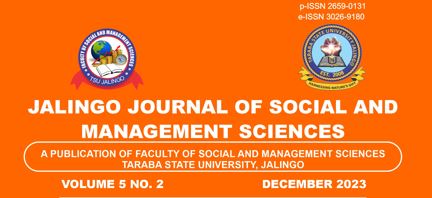Social Studies Education in Nigeria: A Panacea for National Development
Keywords:
Citizenship, Development, Education, National Unity, Social StudiesAbstract
Since the 1960s, Social Studies Education has moved from being an enthusiastic course of study in schools to a tool for engendering national development. The issue of sustainable national development has become one of the most pressing and critical challenge of nations and one that presents significant opportunities to national policy makers as they formulate economic and social policies and programs. In Nigeria, educational planners and thought leaders are being asked to formulate educational policies and programs - particularly those related to the development of people’s capacity to function in an increasingly complex and heterogeneous society like Nigeria in ways that advance the nation’s economic, political and social development goals. Six decades after the introduction of Social Studies in Schools in Nigeria, major issues that affect Nigeria’s development remain. In this context, three major problems affecting Nigeria’s development were examined in order to formulate the possible roles Social Studies education must play to bring about sustainable national development. The study contended that social studies must be repositioned to be citizen-centred as opposed to being a content-centred discipline and a strategy to achieve sustainable development towards enhancing the promotion of right type of values, inculcation of national consciousness and national unity etc. The study recommended a commitment to responsible citizenship and offered implication for planning social studies education.

Downloads
Published
Issue
Section
License
Copyright (c) 2023 JALINGO JOURNAL OF SOCIAL AND MANAGEMENT SCIENCES

This work is licensed under a Creative Commons Attribution-NonCommercial 4.0 International License.
